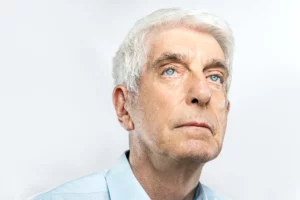Top 5 Views on Life’s Purpose
5. Hedonism
To hedonists, joy and contentment are more important than suffering and misery. Their main point on the purpose of life is that we should strive to have the most enjoyable and joyful experiences possible.
Currently, our time on Earth is limited, and our demise could occur at any moment. Although many have the belief that there is a life beyond this one, this belief is not guaranteed. And therefore, shouldn’t our goal be to savor life to the fullest while it lasts? Why not indulge in all the carnality we desire while eating the best food and drinking the best drinks? Surely we should devote our lives to dodging unpleasant experiences.
4. The tenets of austerity
Zeno of Citium was a teacher of Stoicism, a philosophical school with roots in Ancient Greece. Finding one’s inner calm is fundamental to Stoicism because it is an unchangeable quality. Additional aspects of your life will undergo transformations. For example, due to factors outside our control, the value of your savings account may rise or fall, and the trajectory of your professional life may shift. But what happens inside of us is entirely beyond our control.
Achieving inner tranquility by conquering negative emotions and behaviors is another important aspect of stoicism. This doesn’t imply numbing the emotions, but rather channeling them in a more rational and judgmental direction.
Participation in life’s activities, according to certain stoics who have expanded Zeno’s beliefs, is crucial to understanding what it means to live. To be active is to labor and to meet the needs of life. If you slept continuously, for instance, you would not be experiencing life.
Stoicism is essentially a way of life that emphasizes self-restraint and engagement. Doing this will lead you to a state of tranquility within and liberation from pain.
3. Theistic Positivism

The initial existential philosopher, Søren Kierkegaard of Denmark, argued that life amounted to nothing more than a string of independent decisions. These are the decisions that give our lives purpose, and no one else gets to make them.
Free will, individual responsibility, and the decisions we make each day are the primary means by which each of us must find meaning in our own lives. Furthermore, we ought to make these decisions apart from any precedent, ethical guidelines, or statutes. That being said, it is evident that there are consequences.
You get to decide how you want to live your life and what you want to do with it according to existentialists; the only catch is that you have to be ready to cope with the consequences.
2. The Physical Sciences
The life of Jeremy England, an MIT assistant professor, “should be as unsurprising as rocks rolling downhill.” Rocks, plants, and animals, according to his hypothesis, may both receive and release energy. A rock can only store a small amount of energy and give out a tiny bit more. In contrast, living things excel in absorbing energy and releasing very little of it.
In order to better disperse the energy, atoms will rearrange themselves when they are hit with it, whether it be from the sun or a chemical fuel, when they are in an environment with a high temperature, like Earth’s atmosphere or the ocean. Under specific circumstances, the rearrangement inherently results in life.
All of Earth’s species originated from a single cell of organizing atoms that began to evolve around 3.5 billion years ago.
That concludes it. Things had to happen eventually, and that’s why we’re here. That is somewhat disheartening.
1. Valuable Projects
Professor of philosophy at UNC Chapel Hill Susan Wolf offers a unique take on the question of why we’re here.
Wolfe states in her essay “The Meanings of Lives” that there are only two plausible responses to the question “does our existence have meaning?” These are: either there is a God or gods who created us for a purpose, or there is no God or gods and our existence is meaningless and random. However, she does not hold the view that human lives are valueless.
Happiness, she argues early on in the essay, isn’t crucial to understanding life’s purpose. She cites legendary figures like Mahatma Gandhi, Mother Theresa, and Albert Einstein as examples of people whose lives weren’t precisely filled with joy, but whose contributions to society were immeasurable. The life of someone who stays home all day sipping beer and watching TV could be filled with happiness, but it lacks purpose. They would be overjoyed, though.
To live a meaningful life, according to Wolf, one must be actively involved in worthwhile tasks and see them through to completion.
Can you please explain what that means? It ought to be quite obvious to be actively involved, but what exactly are good projects? Everyone has their own idea of what constitutes worth, which is why the phrase is intentionally imprecise. A person’s dedication to becoming a top athlete may go unappreciated if, for instance, you despise athletics. Similarly, you could not appreciate a novelist’s efforts if you don’t read much. Also, just because something has good value doesn’t mean it needs to be moral or even help other people.
A minor degree of success in your endeavor is required, according to her theory. She uses the life of a scientist who dedicates himself entirely to a single project as an example. Subsequently, another scientist discloses identical findings that they independently found, just one week prior to his publication. Sadly, his existence would have no purpose.
Wolf argues that we can have more meaningful lives if we participate in worthwhile causes rather than focusing just on what makes us happy. This demonstrates that we value something beyond ourselves.
SEE ALSO: Top 10 Ghost Haunting Stories From US National Parks



